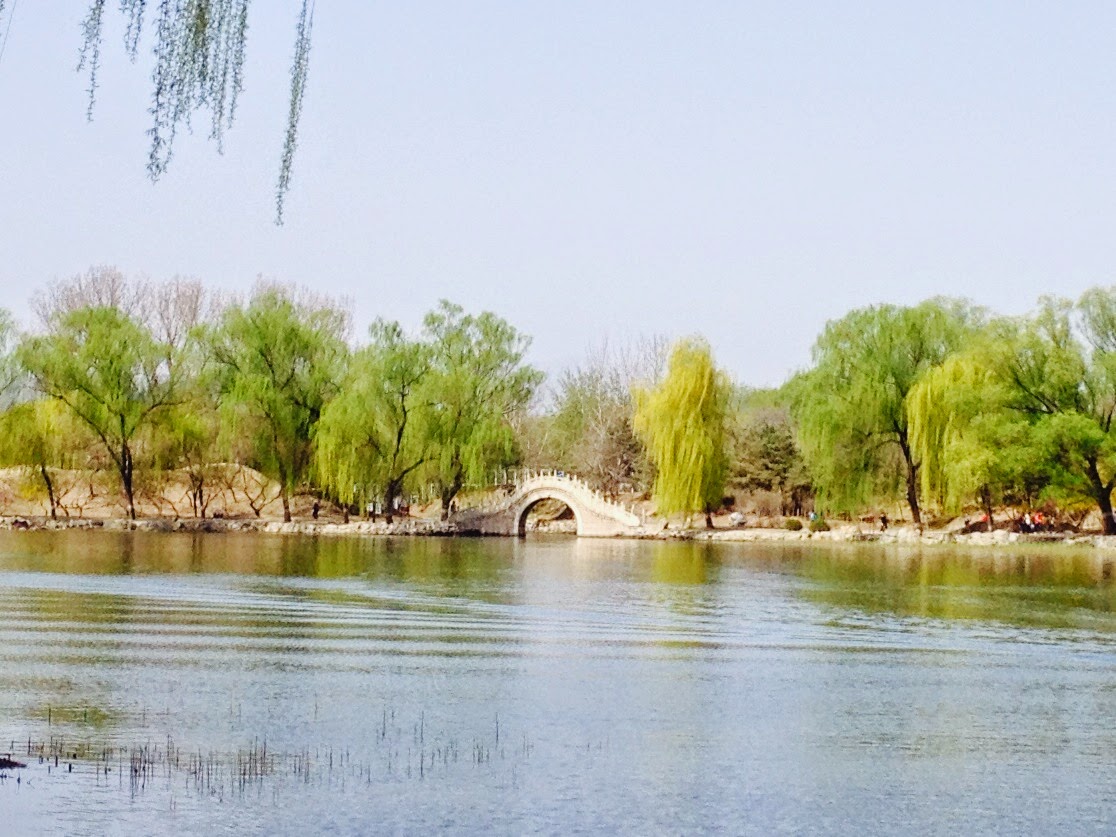A few weeks ago, I went to visit the Old Summer Palace, also known as 圆明园 (Yuán Míng Yuán) in Chinese, which literally means "the perfect bright garden". This palace was built in 1707 during the reign of the Kangxi Emperor. It was used as the private residence of the Qing Dynasty until it was looted and destroyed in 1860 by British and French troops during the Second Opium War.
 |
| The ruins of 远瀛观 (Yuǎnyíng Guān). |
 |
| The ruins of 海晏堂 (Hǎiyàntáng). |
One of the features of the imperial gardens include the beautiful 万花阵 (Wànhuāzhèn) literally meaning the "10,000 flower maze".
One of my favorite features of the gardens is the many willow trees swaying in the wind. This really added a nice relaxing touch to the atmosphere of the gardens.
Getting There
The Old Summer Palace is located across the road from the west gate of Tsinghua University. You can catch buses to there and walk across, or you can get on subway line 4 and get off at YUANMINGYUAN PARK station.



























.jpg)

.jpg)